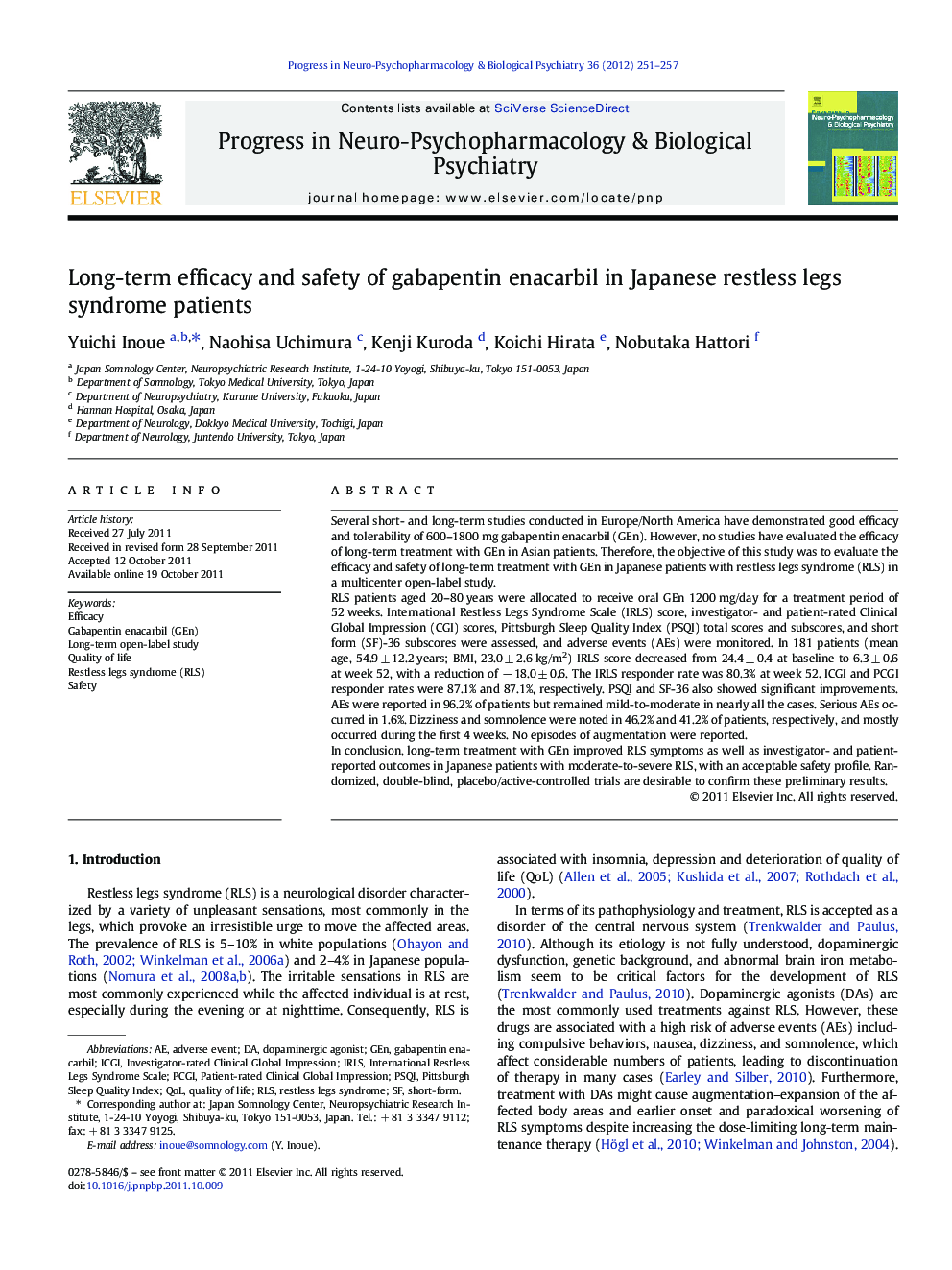| کد مقاله | کد نشریه | سال انتشار | مقاله انگلیسی | نسخه تمام متن |
|---|---|---|---|---|
| 2565025 | 1128042 | 2012 | 7 صفحه PDF | دانلود رایگان |

Several short- and long-term studies conducted in Europe/North America have demonstrated good efficacy and tolerability of 600–1800 mg gabapentin enacarbil (GEn). However, no studies have evaluated the efficacy of long-term treatment with GEn in Asian patients. Therefore, the objective of this study was to evaluate the efficacy and safety of long-term treatment with GEn in Japanese patients with restless legs syndrome (RLS) in a multicenter open-label study.RLS patients aged 20–80 years were allocated to receive oral GEn 1200 mg/day for a treatment period of 52 weeks. International Restless Legs Syndrome Scale (IRLS) score, investigator- and patient-rated Clinical Global Impression (CGI) scores, Pittsburgh Sleep Quality Index (PSQI) total scores and subscores, and short form (SF)-36 subscores were assessed, and adverse events (AEs) were monitored. In 181 patients (mean age, 54.9 ± 12.2 years; BMI, 23.0 ± 2.6 kg/m2) IRLS score decreased from 24.4 ± 0.4 at baseline to 6.3 ± 0.6 at week 52, with a reduction of − 18.0 ± 0.6. The IRLS responder rate was 80.3% at week 52. ICGI and PCGI responder rates were 87.1% and 87.1%, respectively. PSQI and SF-36 also showed significant improvements. AEs were reported in 96.2% of patients but remained mild-to-moderate in nearly all the cases. Serious AEs occurred in 1.6%. Dizziness and somnolence were noted in 46.2% and 41.2% of patients, respectively, and mostly occurred during the first 4 weeks. No episodes of augmentation were reported.In conclusion, long-term treatment with GEn improved RLS symptoms as well as investigator- and patient-reported outcomes in Japanese patients with moderate-to-severe RLS, with an acceptable safety profile. Randomized, double-blind, placebo/active-controlled trials are desirable to confirm these preliminary results.
► This was the first long-term study of GEn in Japanese restless legs syndrome patients.
► GEn treatment for 52 weeks significantly decreased IRLS scores versus baseline.
► The IRLS, ICGI and PCGI responder rates were 80.3%, 87.1% and 87.1%, respectively.
► Adverse events, mainly somnolence and dizziness, were mild-to-moderate in severity.
► No episodes of investigator-reported augmentation were noted.
Journal: Progress in Neuro-Psychopharmacology and Biological Psychiatry - Volume 36, Issue 2, 30 March 2012, Pages 251–257